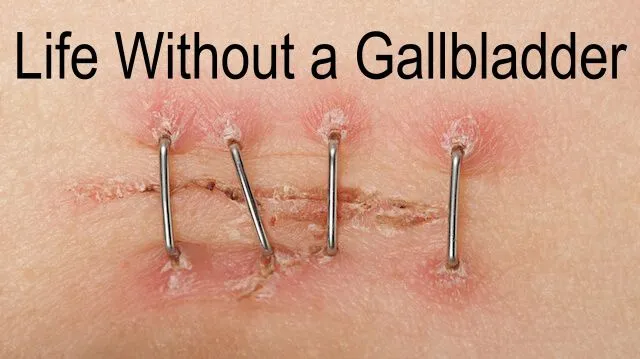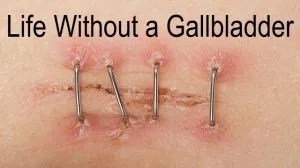
- Share on Facebook8209
- Share on Pinterest
- Share on Twitter
Did you know that every year over 600,000 cholecystectomies (gallbladder removal surgeries) are performed in the United States? Gallbladder surgery, like wisdom tooth removal, has become a routine procedure, with over 90 percent of them performed laparoscopically, meaning minimally invasive. People who undergo the surgery are usually told that nothing changes for them after the procedure. Sometimes they will be advised to eat a low-fat diet to prevent digestive problems and diarrhea.
This recommendation may sound like a good idea until you realize that your body relies on healthy fats for many important functions. Fat is critical for the makeup of your cell membranes; it’s an important source of energy and is needed for adequate use of protein.
It also absorbs fat-soluble vitamins A, D, E and K and manages inflammation. Finally, fat slows the absorption of food, which makes you feel full longer.
The gallbladder is located under the liver on the right side of your abdomen. The liver produces bile, and the gallbladder stores it until it is needed to break down fats into fatty acids for absorption through the intestinal wall.
A low-fat diet can make the gallbladder sluggish and bile can become thick and slow. Gallstones and gallbladder attacks can be the result, and make gallbladder surgery unavoidable. Unfortunately, countless patients suffer from essential fatty acid deficiency, which comes with symptoms such as irritability, poor blood sugar handling and poor nervous system function after surgery.
As mentioned above, the liver continues to produce bile even without the gallbladder in place. This bile continues to trickle into the small intestine. When a meal with fats enters the small intestine, there won’t be sufficient bile to break down those fats. This is what gives you cramps and diarrhea.
What can you do if you have lost your gallbladder? Let’s explore some solutions, so you can live a long and healthy life even without this important organ.
 Bile salts: To support the production of bile you can take bile salts, which usually consists of ox bile. Take bile salts before every meal with a full glass of water.
Bile salts: To support the production of bile you can take bile salts, which usually consists of ox bile. Take bile salts before every meal with a full glass of water.
Amino acids: Taurine and glutamine improve bile quality and bile production in the liver. Purchase them as capsules for quick absorption.
Herbs: Herbs are a great way to support the liver and gallbladder and bile production. Use chives, garlic, parsley, mint and basil in salads and meals.
Spices: The liver likes it hot. If you can stand it, use hot spices like mustard, horseradish, chili peppers, curry and turmeric. If you have a sensitive stomach, simply use the spices in smaller doses.
Water: Water is the body’s most abundant macronutrient and helps the liver with bile production and detoxification.
Related reading: Detox Your Liver and Reduce Inflammation with Cumin
Of course, supporting the liver and gallbladder also means you should avoid a few things.
Try to limit or eliminate your intake of alcohol, processed and refined sugars, carbs and deep-fried foods. Your liver will thank you for it, and your waistline will, too.
Read also: It’s Not Just Too Much Alcohol that Can Destroy Your Liver: The Sour Truth On This Toxic Sweet
A word of caution: If you are in doubt about any symptoms you’re experiencing, you may want to seek the help from a nutrition coach who can assist you in fine-tuning your diet and supplementation, and refer you to a medical professional when needed.
— The Alternative Daily
Sources:
http://www.ncbi.nlm.nih.gov/pubmed/10447244
http://divinehealthfromtheinsideout.com/2014/05/7-key-foods-to-improve-gallbladder-health
https://www.liverdoctor.com/liver-problems/gallbladder
http://www.naturalnews.com/007733_gall_bladder_surgery.html
- Share on Facebook8209
- Share on Pinterest
- Share on Twitter

